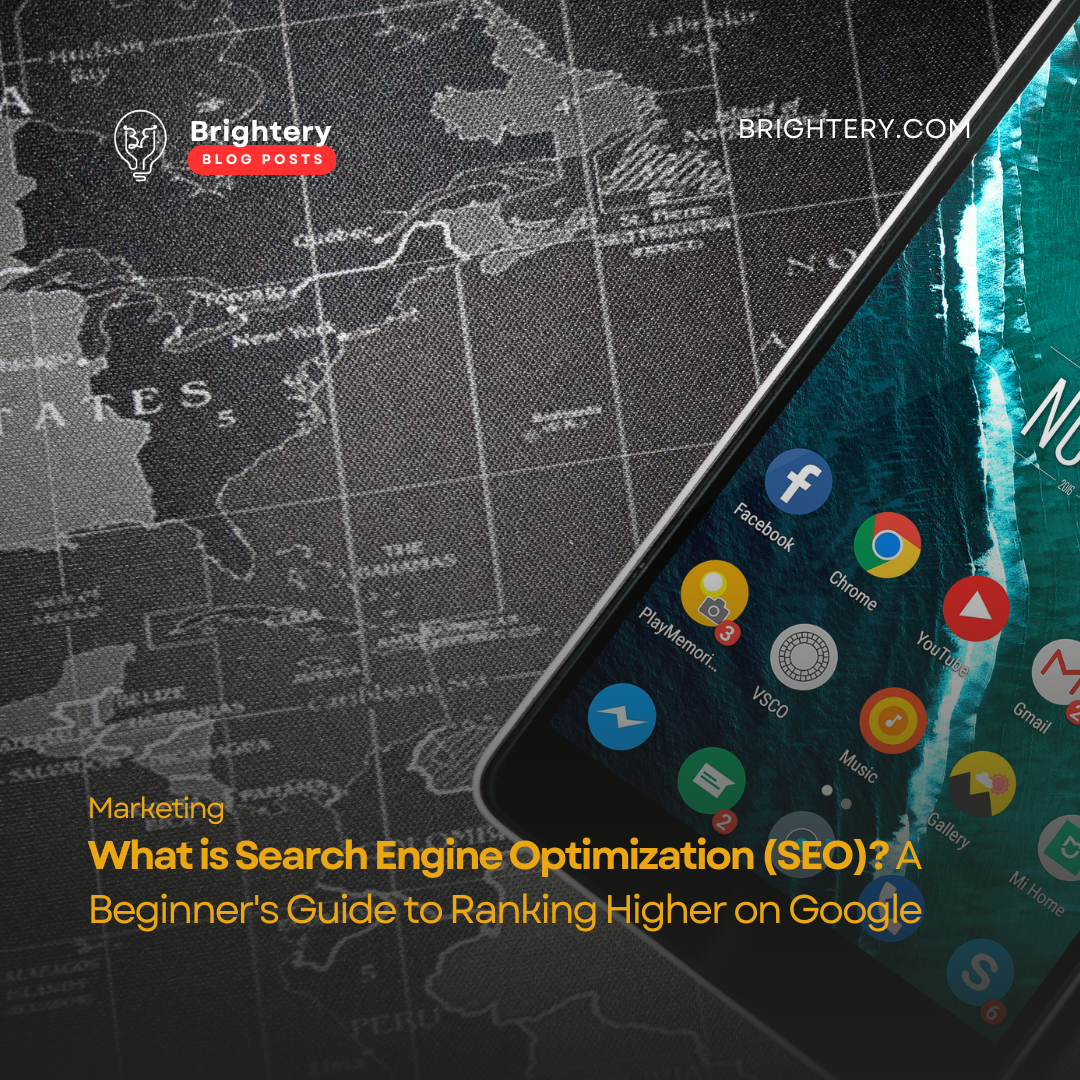Search Engine Optimization, or SEO, is a set of strategies and practices used to increase a website's visibility on search engines like Google. The higher a website ranks in search engine results, the more likely it is to attract visitors.

Why SEO is Important
SEO is crucial because it drives organic traffic—visitors who find your website naturally without paid advertising. With billions of searches each day, optimizing your website for search engines is key to standing out and reaching your audience.
How Search Engines Work
Search engines use complex algorithms to decide the order of results for any given search query. They “crawl” websites, analyze their content, and rank them based on factors like relevance, quality, and user experience.
The Basics of SEO
SEO has several components, each with its unique role in improving rankings. The three primary categories are:
On-Page SEO
On-page SEO focuses on optimizing the content and HTML code on individual pages, including headings, meta descriptions, and image tags.
Off-Page SEO
Off-page SEO refers to actions outside your website, like building backlinks (links from other websites to yours), which indicate that your site is valuable and trustworthy.
Technical SEO
Technical SEO involves backend optimizations to improve website speed, mobile compatibility, and security, helping search engines crawl and index your site more effectively.
Freelance WordPress Development: A Guide to Building a Successful Career
Keywords and Keyword Research
Keywords are words or phrases that people enter into search engines to find information. Researching and selecting the right keywords to target is essential in SEO. Using tools like Google Keyword Planner or Ahrefs can help you discover keywords relevant to your audience.
Content Optimization
SEO-friendly content is not just about keywords but also about providing useful information that meets users' needs. Content optimization includes using keywords naturally, adding value, and creating high-quality, engaging content that keeps readers on your page.
Importance of Backlinks
Backlinks from reputable sites act as “votes of confidence” for search engines. Quality backlinks can boost your rankings, while low-quality links can harm them.
SEO for Different Content Types
Different content types, like blogs, videos, and product pages, require unique SEO approaches. For instance, blog posts benefit from keyword-rich, informative content, while videos need descriptive titles, tags, and transcripts for better visibility.
The Role of User Experience in SEO
User experience (UX) is a growing factor in SEO. Search engines prioritize websites that load quickly, are easy to navigate, and work well on mobile devices, as these factors enhance the user experience.
Common SEO Mistakes to Avoid
Avoiding mistakes is critical to SEO success. Common errors include keyword stuffing, neglecting mobile optimization, using duplicate content, and focusing on quantity over quality in backlinks.
SEO Tools and Resources
Tools like Google Analytics, SEMrush, Ahrefs, and Moz help analyze website performance, track rankings, and uncover keyword opportunities. These tools simplify the optimization process and provide valuable insights.
Local SEO
Local SEO helps businesses target customers in a specific geographic area. Strategies include optimizing Google My Business listings, using location-based keywords, and gathering customer reviews.
Mobile Optimization in SEO
As mobile traffic grows, optimizing your website for mobile devices is essential. A mobile-friendly site improves user experience and can positively impact search rankings.
How to Measure SEO Success
Key metrics include organic traffic, click-through rates, bounce rates, and conversion rates. Tracking these metrics helps you assess the effectiveness of your SEO efforts and identify areas for improvement.
Future Trends in SEO
SEO is always evolving, with trends like voice search, AI, and video optimization playing bigger roles. Staying updated on these trends helps keep your SEO strategies effective.
Conclusion
SEO is a powerful way to increase your online presence and drive organic traffic to your website. By understanding its components, avoiding common mistakes, and staying informed on emerging trends, you can create a strong SEO strategy that supports your business’s growth.
Frequently Asked Questions
1. What is SEO, and why is it important?
SEO stands for Search Engine Optimization. It’s important because it helps increase a website's visibility in search engine results, driving organic traffic and supporting online growth.
2. How long does SEO take to work?
SEO is a long-term strategy, often taking a few months to show significant results, depending on competition, industry, and the quality of your optimization efforts.
3. What are keywords in SEO?
Keywords are words or phrases that people search for in search engines. Choosing the right keywords is crucial in attracting the right audience to your website.
4. Can I do SEO myself?
Yes, many aspects of SEO can be done by beginners. However, advanced techniques may require expert knowledge and tools.
5. How does local SEO differ from general SEO?
Local SEO focuses on optimizing a website to attract customers in a specific area, using local keywords and improving listings on platforms like Google My Business.

0 Comments
Post your comment